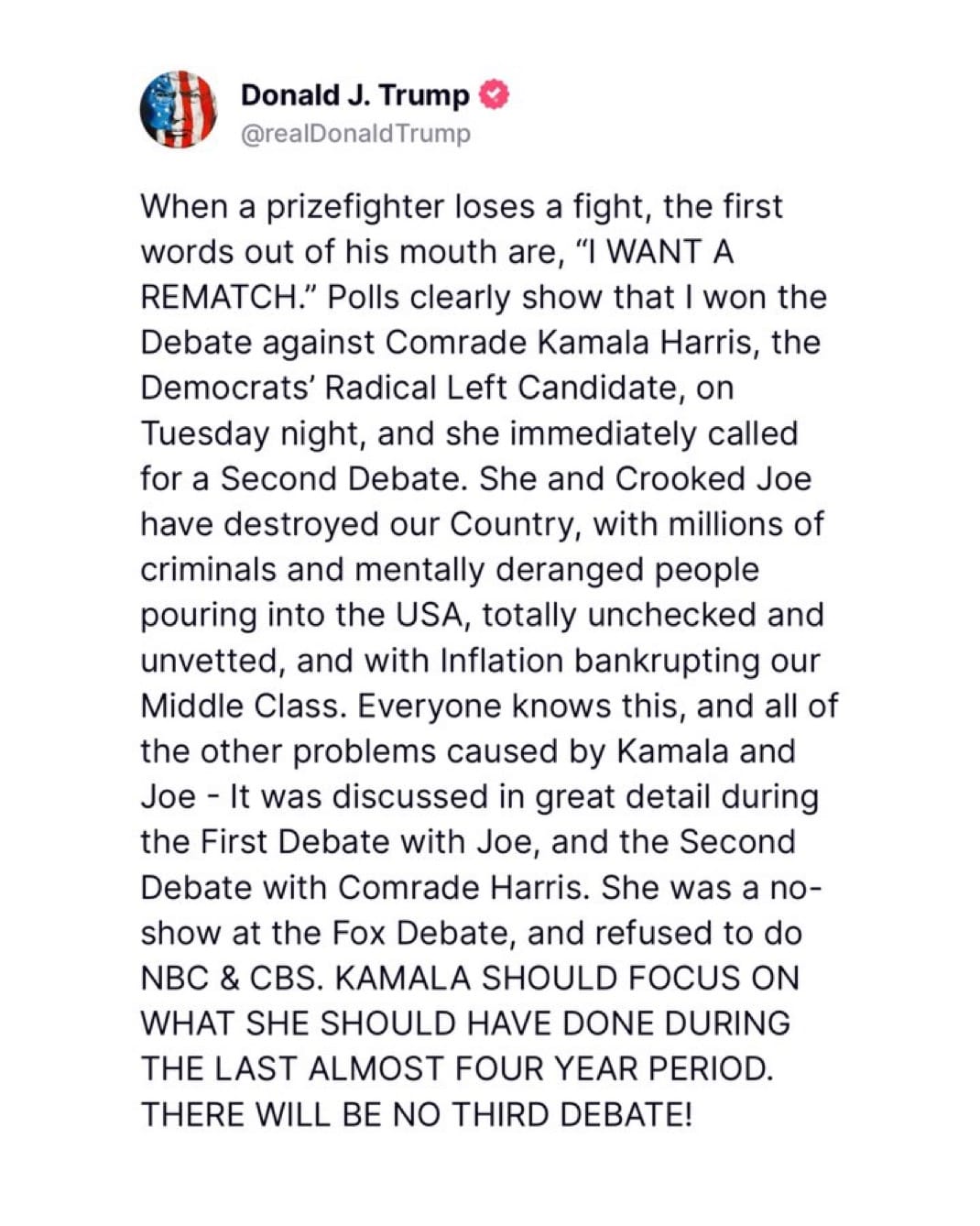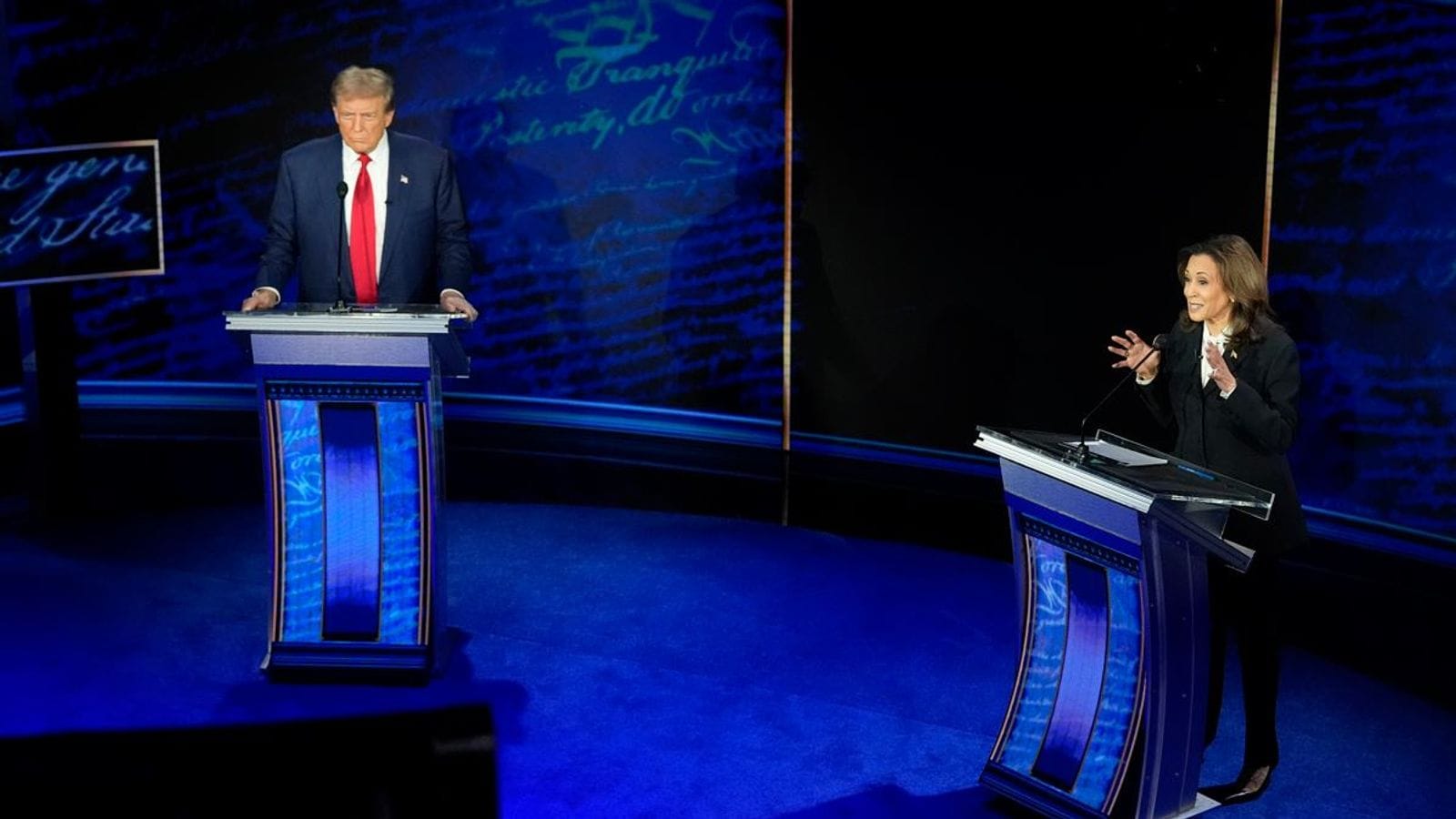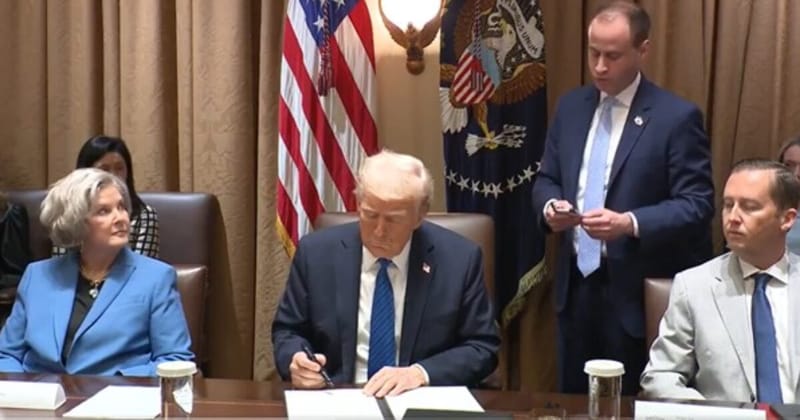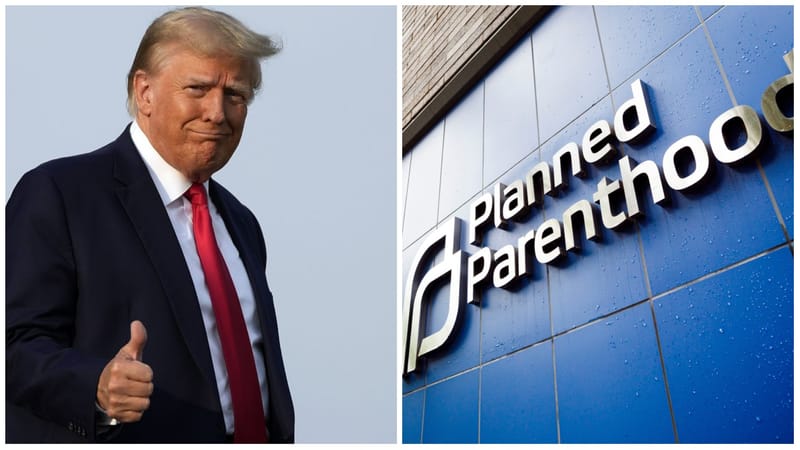Trump Declines Future Debates with Kamala Harris
Former President Donald Trump has announced he will not participate in any further presidential debates with Vice President Kamala Harris, following what he described as a biased moderation by ABC News during their last encounter. Trump's decision, communicated through his social media channels, marks a significant shift in
Former President Donald Trump has announced he will not participate in any further presidential debates with Vice President Kamala Harris, following what he described as a biased moderation by ABC News during their last encounter. Trump's decision, communicated through his social media channels, marks a significant shift in the 2024 election campaign dynamics, where direct confrontations between candidates are typically seen as pivotal moments for voter engagement.
The debate in question, which took place on September 10, was characterized by intense exchanges, with both candidates claiming victory. Trump's camp argued that the ABC moderators, David Muir and Linsey Davis, showed clear favoritism towards Harris, particularly in their fact-checking approach. Trump's team pointed out that while Trump's statements were frequently challenged, Harris's claims, even when factually dubious, went uncorrected. This perceived imbalance was highlighted by Trump's campaign as a reason for his withdrawal from future debates.

On the other hand, Harris's campaign and supporters viewed her performance as a clear win, emphasizing her ability to stay on message and effectively counter Trump's attacks. They argued that Harris managed to highlight key policy differences and presented herself as the more presidential candidate, despite Trump's aggressive style. However, the debate's aftermath saw a flurry of social media activity, with many Trump supporters echoing his sentiments about the moderators' bias, suggesting that this perception could influence voter turnout or at least the narrative around media fairness in political coverage.
The debate itself was a spectacle of contrasting styles and substance. Trump, known for his direct and often controversial rhetoric, touched on immigration, crime rates, and his version of economic policies, which he claimed would benefit the middle class. Harris, conversely, focused on what she described as Trump's failures in governance, his refusal to accept the 2020 election results, and outlined her vision for America's future, emphasizing unity and progress.
Post-debate analysis from various quarters showed a split opinion. While some fact-checking organizations criticized both candidates for bending the truth, the public's reaction, especially on platforms like X (formerly Twitter), leaned heavily into the debate over media bias rather than the candidates' policies. Trump's decision to step away from further debates could be seen as a strategic move to avoid what he perceives as an unfair playing field, potentially rallying his base by framing himself as a victim of media bias.




